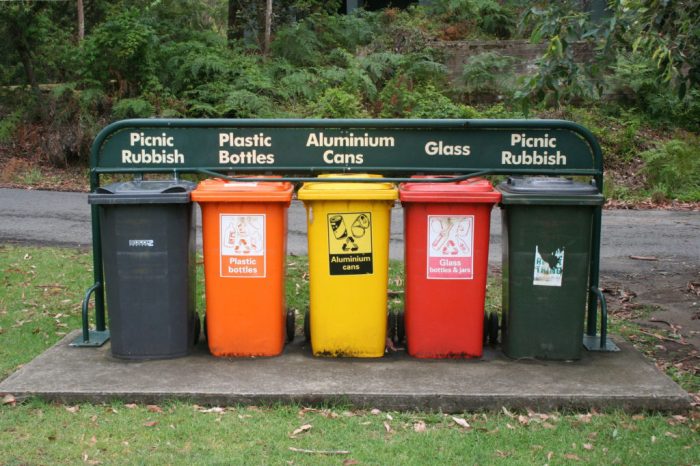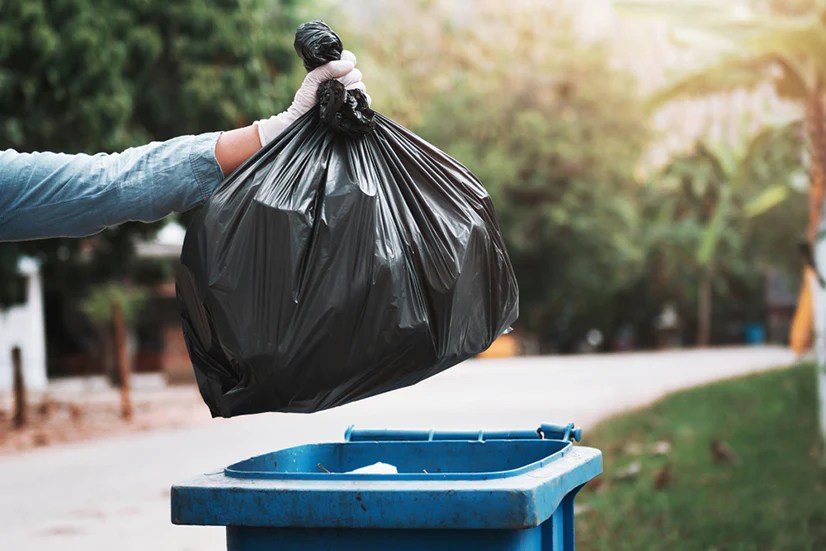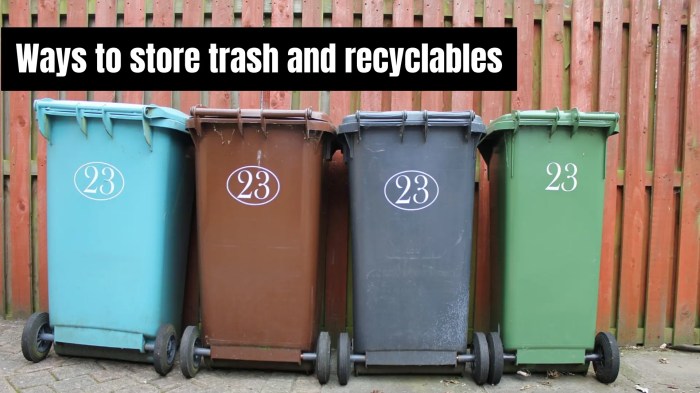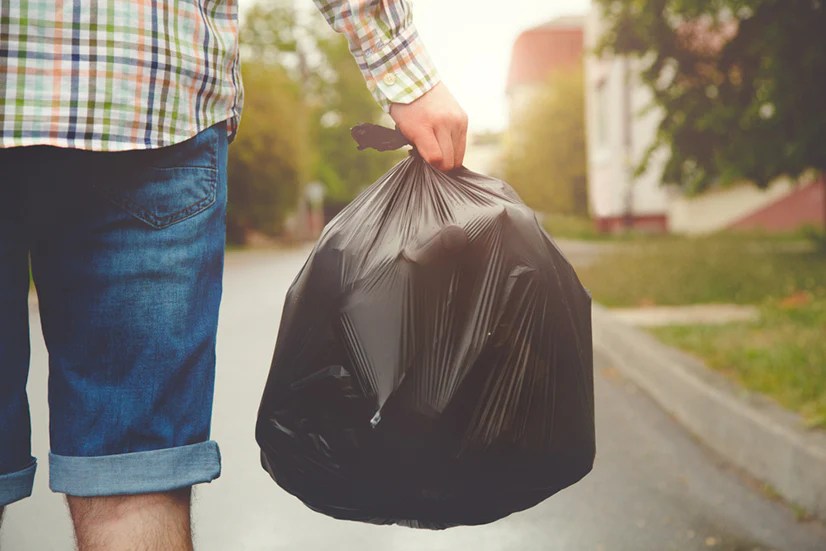In the realm of waste and recyclable storage, como deben almacenarse la basura y los articulos reciclables, proper management is paramount. This comprehensive guide delves into the significance of appropriate storage practices, exploring the consequences of neglect and providing a roadmap for responsible disposal.
Understanding the intricacies of waste categorization and designated storage areas empowers individuals to contribute effectively to environmental sustainability. By adhering to collection and disposal procedures, adhering to special considerations for hazardous waste, and actively participating in community recycling programs, we can collectively foster a cleaner and healthier planet.
Waste and Recyclables Storage Guidelines

Proper storage of waste and recyclables is essential for maintaining a clean, healthy, and sustainable environment. Improper storage can lead to contamination, attract pests, and pose health hazards.
Consequences of improper storage include:
- Contamination of recyclables, rendering them unusable.
- Attraction of pests such as rodents and insects, leading to property damage and health concerns.
- Foul odors and unsightly appearances, detracting from the aesthetic appeal of an area.
- Increased risk of fires and other safety hazards due to improper handling of flammable or hazardous materials.
Categorization of Waste and Recyclables

Waste and recyclables can be categorized based on their composition and disposal methods. Common waste items and their proper disposal methods include:
| Item Type | Disposal Method | Special Handling Requirements |
|---|---|---|
| Food scraps | Composting or disposal in designated bins | Wrap in biodegradable materials before discarding. |
| Paper products | Recycling or disposal in designated bins | Remove any non-paper materials before recycling. |
| Plastic containers | Recycling or disposal in designated bins | Rinse and empty containers before recycling. |
| Metal cans | Recycling or disposal in designated bins | Remove any food residue before recycling. |
| Glass bottles and jars | Recycling or disposal in designated bins | Remove any labels or caps before recycling. |
| Hazardous waste | Special disposal at designated facilities | Follow specific guidelines for handling and disposal. |
Recyclable materials can be identified by the recycling symbol (three arrows forming a triangle) on their packaging or labels.
Designated Storage Areas
Designated storage areas should be established for different types of waste and recyclables. This helps to maintain organization, prevent contamination, and facilitate efficient collection.
Recommended storage containers include:
- Color-coded bins for different waste categories (e.g., green for recyclables, black for trash).
- Labeled bins or containers to clearly identify the contents.
- Covered bins or containers to prevent odors and pests.
- Designated areas for bulky items, such as a separate shed or storage unit.
Efficient storage areas should maximize space while minimizing contamination. Consider the following tips:
- Place bins and containers in accessible locations.
- Provide clear signage and instructions for proper disposal.
- Regularly clean and maintain storage areas to prevent odors and pests.
Collection and Disposal Procedures

Establish clear collection schedules and procedures for waste and recyclables. Adhering to these schedules is crucial for maintaining a clean and organized environment.
Collection schedules may vary depending on the municipality or service provider. It is important to check with local authorities for specific guidelines.
Best practices for safe and responsible disposal include:
- Dispose of waste and recyclables in designated containers only.
- Securely close lids or covers to prevent spills or contamination.
- Do not overfill containers to avoid overflowing and spillage.
- Handle hazardous waste with caution and follow specific disposal guidelines.
Special Considerations

Certain waste items require special handling and disposal considerations.
Hazardous Waste, Como deben almacenarse la basura y los articulos reciclables
Hazardous waste includes items such as batteries, electronics, and chemicals. These materials pose potential risks to human health and the environment and must be disposed of properly.
Guidelines for handling and disposing of hazardous waste include:
- Store hazardous waste in secure, leak-proof containers.
- Label containers clearly with the contents and any special handling requirements.
- Dispose of hazardous waste at designated collection facilities or through authorized waste management companies.
Bulky Items
Bulky items such as furniture and appliances require special handling and disposal. Contact local waste management authorities or recycling centers for specific guidelines.
Community Recycling Programs
Community recycling programs play a vital role in reducing waste and promoting sustainability. Individuals can participate effectively by:
- Educating themselves about local recycling programs and guidelines.
- Separating recyclables from waste and placing them in designated containers.
- Encouraging others to participate in recycling efforts.
FAQ Corner: Como Deben Almacenarse La Basura Y Los Articulos Reciclables
What are the potential consequences of improper waste storage?
Improper waste storage can lead to contamination of soil and water resources, air pollution, and the spread of disease. It can also create unsightly and hazardous conditions in our communities.
How can I identify and separate recyclable materials from waste?
Recyclable materials typically include paper, plastic, metal, and glass. Look for recycling symbols or consult local guidelines to determine which materials are accepted in your area.
What are the special handling requirements for hazardous waste?
Hazardous waste, such as batteries, electronics, and chemicals, requires special handling and disposal methods to prevent environmental contamination. Contact your local waste management authority for proper disposal procedures.